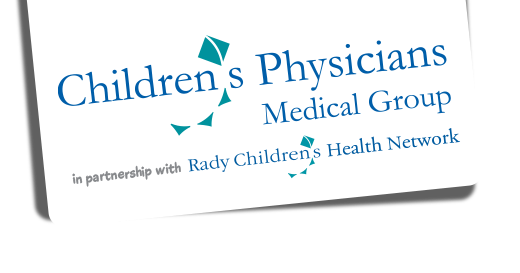
Is your child struggling in school? Is your child’s teacher recommending further evaluation for learning or behavior concerns? I frequently see children whose parents have a variety of concerns involving school behavior or performance. Sometimes the parents initiate a visit with me and sometimes the school sends children to me for an evaluation. Unfortunately, there are so many issues that interfere with school performance that I can’t possibly cover them all (here or in one office visit) and a lot of problems that school children face frequently overlap. Furthermore, the vast majority of learning issues that children face are not problems that I can diagnose or treat.
The purpose of this post will be to address the common problems I see and hear about and how to begin to navigate the system. First we will start with some definitions.
- LD–Learning Disorder/Disability. This a term that describes a range of disorders in the way a child learns and stores information. This may be a problem with reading, writing, math, hearing or speech.
- ADHD–Attention Deficit Hyperactivity Disorder. This includes predominantly inattentive children who are unable to focus and are easily distracted, predominantly hyperactive children who are impulsive and frequently moving, or combined inattentive and hyperactive. The child’s symptoms have to occur in 2 or more settings (not just school) and cause impairment in typical activities like schoolwork or sports. There are many conditions that are commonly present in children with ADHD including learning disorders, mental health disorders (depression and anxiety), and behavior disorders like oppositional defiant disorder (ODD). Sometimes it is hard to know what is the primary condition and what is a symptom of a different underlying condition.
- SST–Student Study Team. This is done at the request of either the parent or the teacher for a child who is having trouble in school. This includes reading problems, math problem, trouble sitting still or other behavior problems.
- RTI–Response to Intervention. This is an intervention for students identified by the teacher as struggling in a certain skill, like reading. The teacher will employ different interventions within the classroom to help students on different levels. For example, small group learning can be used to divide up students based on skills.IEP–Individualized Education Plan. After an initial assessment (more later), a meeting will take place with a special education teacher, general education teacher, administrator, psychologist, student, parent and potentially another therapist. At this meeting the findings of the assessment are discussed and whether or not the student qualifies for an official IEP. The IEP states the goals for the student and the services that will be provided to help the student reach these goals. There are 13 diagnoses approved by the Individuals with Disabilities Education Act which qualify a student for an IEP. One of these diagnoses is Other Health Impaired so a student with a diagnosis of ADHD can qualify for services under that category.
- 504 Plan–Section 504 of the Rehabilitation Act. This allows for special accommodations for a student regardless of diagnosis. This may mean longer time to take a test, special classroom setting or modification in work assignments. I typically use this for short-term problems like a student athlete recovering from a concussion. However, this can also be initiated for children with a chronic disease or mental health disorder which may keep them out of school for extended periods of time. This will allow those who may be hospitalized or home bound to complete school work without penalty.
First steps
There are several ways a struggling student may be recognized. One may be from the parent, another may be from the teacher, yet another may be from the student him/herself. Sometimes even a coach will notice issues with a child’s focus or behavior. What parents need to know at this point is where to go from here. As I mentioned, some parents come to me first and some go right to the school. My recommendation is to do both. The main diagnosis your pediatrician can make is ADHD, while also ruling out a mental health or behavior disorder. If there is concern for more extensive mental health or behavioral issues, a referral to a psychiatrist may be needed. All of the other diagnoses involved with learning concerns comes from the school. Because there is so much overlap and because a learning problem may create the appearance of an attention problem, I always ask parents to approach the school during the course of my evaluation. The first step at school may be RTI or a full SST which may result in changes or accommodations for the student by the teacher. The teacher may change a child’s seat, break up work assignments, or work with the parent to give feedback on behavior. However, if it is determined that more extensive assessment is needed, that will then be scheduled followed by the initial IEP meeting.
What is “testing”?
Psycho-educational testing is done upon request by a multi-disciplinary team to evaluate students for a variety of problems. After a review of the child’s record, classroom observation and an interview with the parent and/or student, the team decides which battery of tests are warranted. These tests assess for cognitive, behavioral, speech, reading, executive function and processing problems. Not all students require every test and tests may be administered by any of the team members including the school psychologist or special education teacher. Once the testing is complete, the team looks at all of the results, in conjunction with past records and observation of the student, to formulate an assessment and plan. Sometimes the evaluation does not conclude that a child is eligible for special education services or an IEP. If that is the case, it is possible to get outside help, usually at a cost to the parent. You can also advocate for your child by asking for further testing or re-evaluation. More information on what to do if you disagree with the results here. Furthermore, private testing can be paid for if the school does not feel testing is necessary. However, there are steps you can take if the school refuses evaluation.
Overall, once a parent initiates a request, the school has 15 days to respond. After the school responds and permission is given for an assessment, the school has 60 days to hold the IEP meeting. Therefore, expect the whole process to take up to 3 months.
What services are provided by the school?
After the initial IEP meeting, goals are laid out for the student along with the services the school will provide to help the student meet those goals. Services are provided for a variety of learning disabilities including (but not limited to) dyslexia, dysgraphia, Autism, nonverbal learning disorders, speech and language disorders, and as stated above, other health issues which includes ADHD.
- Specialized Academic Instruction–Special education teachers are specially trained to support students who need extra help in all academic areas as well as organization and focus. This allows students to stay in their classroom for the majority of time but then get pulled out for help in reading, writing or math as needed.
- Speech and Language Therapy–Speech language pathologists work with children who are struggling with language difficulties, speech intelligibility, stuttering and even social skills or social language.
- Occupational Therapy–Occupational therapists work with students on fine motor skills like handwriting or self-care. They also work on social skills, sensory processing and focus.
- School Psychologist–This is the person administering the assessment testing and also someone who can help formulate a behavior plan. I sometimes recommend a child visit with a school psychologist or counselor if they are struggling with peer relations or varying emotions due to school stress and pressure.
- Aide–Some students who have severe communication or behavior problems will occasionally qualify to have a helper guide them through their day.
What about ADHD?
Attention deficit hyperactivity disorder is a chronic condition that impairs a child’s ability to focus or sit still in a variety of settings. Evaluating for ADHD is complicated because many other scenarios can cause the same symptoms. A child who isn’t sleeping well due to enlarged tonsils may come to school excessively sleepy and look uninterested. A child with depression may also appear to be unfocused. On the other hand, a child with anxiety or ODD may act out and appear to be impulsive. That’s why it is imperative that the doctor doing the evaluation screen for these problems. At the same time, a child who is having trouble learning for any number of reasons may also appear to have trouble with concentration. Again, necessitating further evaluation by the school at the same time. Once it is determined that a child has ADHD, the primary intervention is behavior therapy, especially for younger kids aged 4-6. This can be accomplished either at the school level or with a private therapist/psychologist. For children over age 6, addition of FDA approved stimulant medication can be helpful. I typically start at the lowest dose of a long acting medication and work up as needed. During the first few weeks of treatment it is important to monitor the child for side effects. All children being worked up for ADHD need to be screened for any underlying medical conditions including cardiac or neurologic, which may be a contraindication to medication.
If you feel your child needs extra help with learning, focus or behavior, talk to both their pediatrician and their teacher. Keep in mind that not all academic problems require medication and there are many options to help students.
Huge thank you to:
- My amazing husband Brian, who is the most patient and dedicated special ed teacher.
- My good friend Steve Oas who runs the Oas Center.
- School psychologist John Rohlf.








Leave a Reply